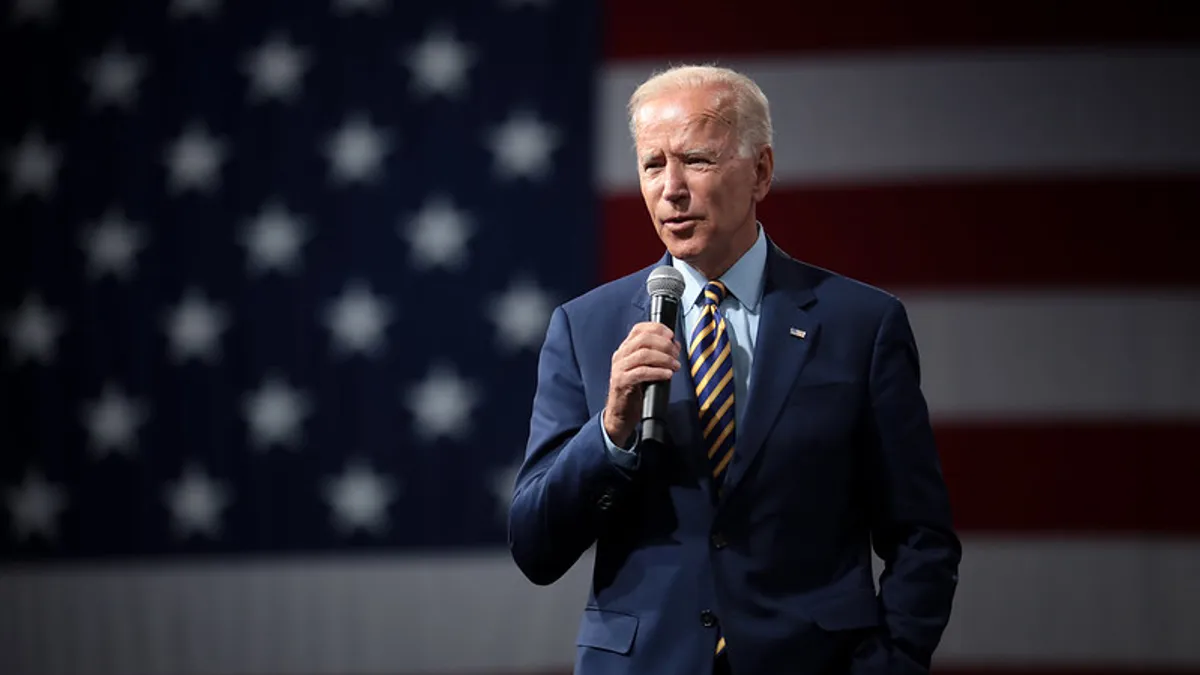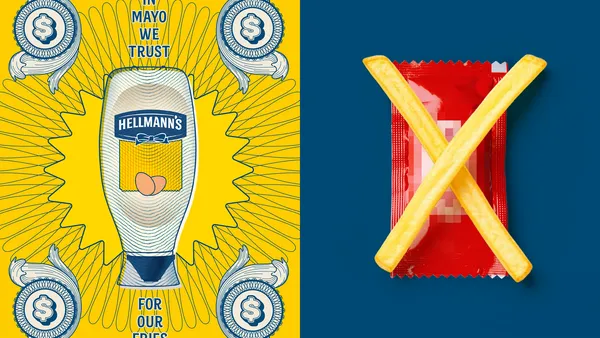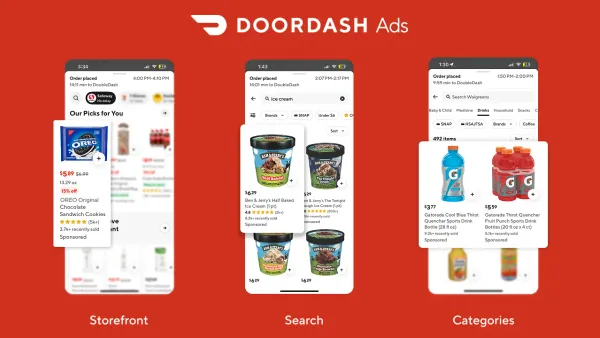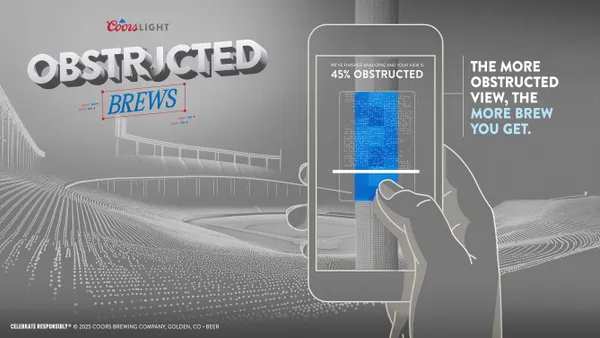UPDATE: June 9, 2021: President Biden will revoke an executive order by former President Trump that sought to ban TikTok, per a report by the New York Times. According to a memo circulated by the Commerce Department, Biden will replace the order with one that calls for a broader review of several foreign-controlled applications that pose security risks.
Dive Brief:
- Oracle and Walmart's bid to acquire TikTok is on indefinite hold as President Joe Biden maps out a strategy for dealing with Chinese tech firms that will differ from his predecessor, The Wall Street Journal reported, citing sources familiar with the matter.
- TikTok has continued discussions with the Committee on Foreign Investment in the United States (CFIUS), the interagency group that oversaw a review of the app's business after the Trump administration announced plans to ban it in the U.S., sources told the Journal. There's still a possibility of TikTok working with a trusted third party to manage its data in the U.S. — a role Oracle at one point led the pack for — which could occur without a sale.
- Walmart continues to work closely with TikTok. The retailer is offering warehouse and sales support to transactions conducted over the app while building out its marketing presence on the platform, other sources told the Journal.
Dive Insight:
Uncertainty lingers over the future of TikTok in the U.S., but the Journal's report signals the Biden administration will take a different — and potentially less aggressive — approach to dealing with the app and parent company ByteDance, while not being totally hands-off. TikTok is still reportedly negotiating around taking on a third-party technology partner to help with data management, suggesting its operational structure could look different at some point. Oracle and Walmart may still play a role in any potential deal as well, the Journal's sources said.
TikTok's access to troves of user data remains a contested topic, although no amount of scrutiny has slowed marketers' interest in the platform. Critics say the possibility that sensitive information could be shared with Chinese authorities is a national-security threat, but TikTok has insisted it would never do that. Oracle's bid to acquire a stake in the app at one point seemed likely to come to fruition and might've cooled such concerns. In September, the cloud-computing firm announced it would act as "the trusted technology provider" for TikTok in the U.S.
But President Trump's ban order and attempts to force a divestiture of TikTok encountered frequent legal challenges in the courts, and then faded in relevance as the election cycle wore on. In November, TikTok claimed the Trump administration had essentially forgotten about the ban. The Journal's report indicates conversations with CFIUS are now active.
Attempts at ironing out a new ownership structure for TikTok that appeases regulators in the U.S. and abroad have grown complicated in other ways. Chinese officials late last summer introduced export laws that would make selling off the TikTok algorithm — arguably the app's most valuable asset — far more difficult.
Walmart has continued to leverage TikTok in its marketing, valuing the app's ability to bridge creator-driven content with commerce and advertising. Around the holidays, the big-box retailer ran a shoppable livestream on the platform that let viewers tap products in the video and check out without having to leave the app. The activation was the first of its kind on TikTok.
Walmart declined to comment on this story. A representative from Oracle did not immediately respond to a request for comment.
Other than being caught in a chaotic regulatory whorl, TikTok itself appears to be doing just fine. Neither users nor brands have fled in a meaningful way, as TikTok was the most-downloaded app last year. The app has also recently secured partnerships that indicate it is maturing as an advertising platform.
The company is now doubling down on commerce initiatives to better compete with rivals like Facebook, the Financial Times reported earlier this week. Shoppable livestreams and brand catalogs are a piece of that strategy, the publication said.
Further clarity on the new administration's approach to TikTok and other Chinese apps is expected soon with a deadline approaching next week for the government to respond to TikTok's challenge of the executive order. Also on deck is a separate executive order scheduled to go into effect that calls for multiple Chinese apps to be banned, including WeChat.















